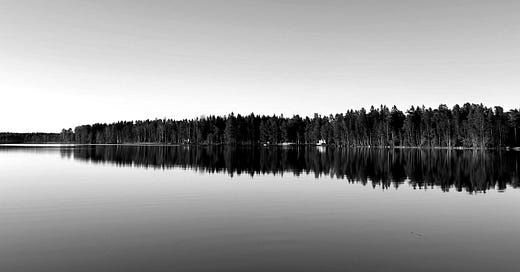I started reporting for season four of Threshold, Time to 1.5, in the early 2020s. The pandemic was the top news story every day, but the climate crisis was also frequently in the headlines. Not frequently enough, not with enough depth and nuance, and surely not absorbed by enough people, but it was there.
One of the narratives that broke through to some extent was that the 2020s were “the decisive decade” — that we still had a slim chance to prevent runaway catastrophic heating if we took meaningful action in this ten years.
People can and do argue about this framing from all sorts of angles. Does it scare people too much? Does it give the impression that the work ends after 2030—or that there’s no point to doing any work at all after that?
But those arguments distract us from the point, which is simple, urgent, and true. Our mass burning of fossil fuels is radically disrupting our planet’s equilibrium and endangering all life, including human life. The longer we wait to change, the fewer options we have, the more expensive those options become, and the more suffering we are inflicting upon ourselves, our progeny, and every living thing on Earth.
The June solstice marked the midpoint of the middle year of the 2020s; we are now halfway through the Decisive Decade. And we are making terrible decisions. Last year was the hottest ever recorded.1 We continue to increase our emissions of planet-warming gases.2 We now have just three years, or possibly even less, to take the actions needed to limit temperature rise to 1.5 degrees Celsius over pre-industrial levels.3
I refuse to waste more than one sentence on the idiocy of powerful people who continue to shout inane lies, imagining they can bully the oceans and the atmosphere into submission.
Instead, I want to focus my attention on what I care about, and the response that care demands of me, as I tried to do in the first episode of Time to 1.5. Here’s an excerpt:
Think about something you love. A person. A place. Your town. Your country. Your farm. Your neighborhood.
Zoom in on one specific face. Your friend. Your sister. Your cat. Your kid. Your mom. Think about how you feel when you're in that place you love. Think about what it's like to look into the eyes of that special person, and see them looking back at you.
And now imagine that someone comes to you out of the blue with a message. “There's danger ahead,” they say. “Everyone and everything you love is at risk. Some of the pain can't be avoided. But if you act quickly and decisively enough, you can prevent the worst. You can make the coming danger less dangerous. You can make it shorter, and less frightening. You can help everyone you love suffer less. But you have to act now.”
This is not a metaphor. This is our reality. Our situation is dire. But think about it this way: we don't always get advance warning for human suffering, let alone instructions on how to reduce it. With climate, we do. We can see the danger coming toward us, and we have the power to lessen the pain for everything and everyone we love. Including ourselves. Will we choose to do that? And do it fast enough?
This is still the essence of the question before us: do we choose to inflict more or less pain on ourselves and other lifeforms? Do we love and respect our home enough to keep it clean and safe? Do we prefer to suffer more, or less?
Christiana Figueres, one of the key architects of the Paris Agreement, made a compelling case for what she calls “stubborn optimism” in this video, released in 2020. Watching it now is sobering, but continues to hold inspiration, too.
Faced with today's facts, we can be indifferent, do nothing. and hope the problem goes away.
We can despair and plunge into paralysis.
Or we can become stubborn optimists with a fierce conviction that no matter how difficult, we must and we can rise to the challenge.
Carbon Brief’s state of the climate reports are excellent. Here’s one from January 2025.
Our World in Data is also an excellent resources. Check out this graph.
Here’s the core of that story and helpful analysis of it by Chris Mooney.




